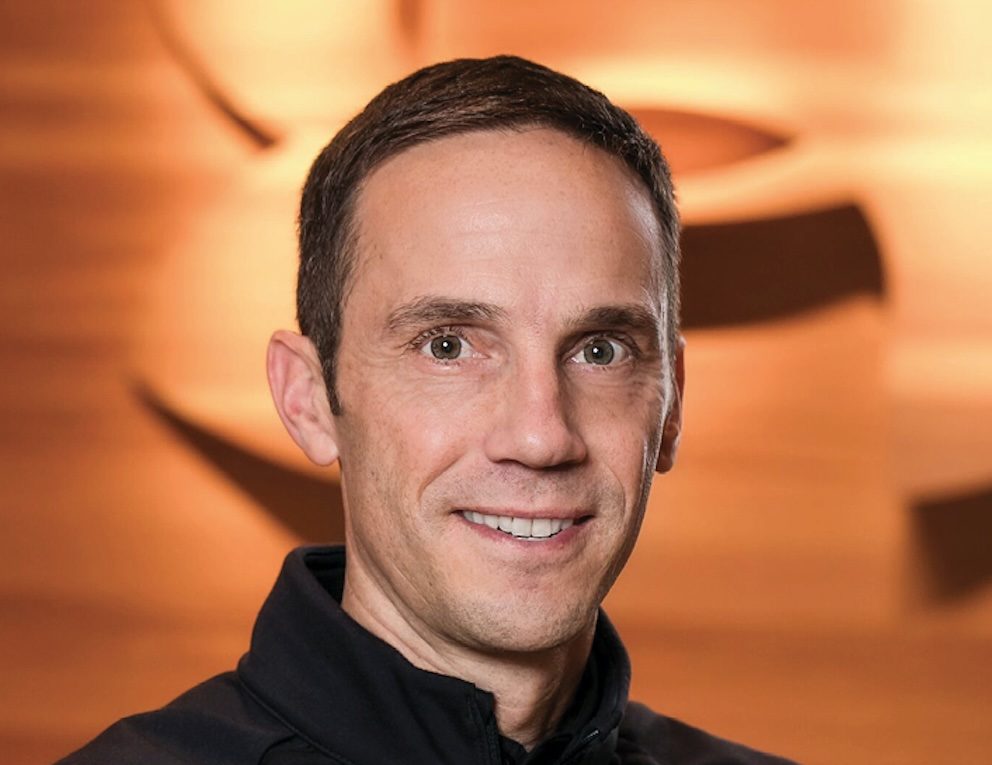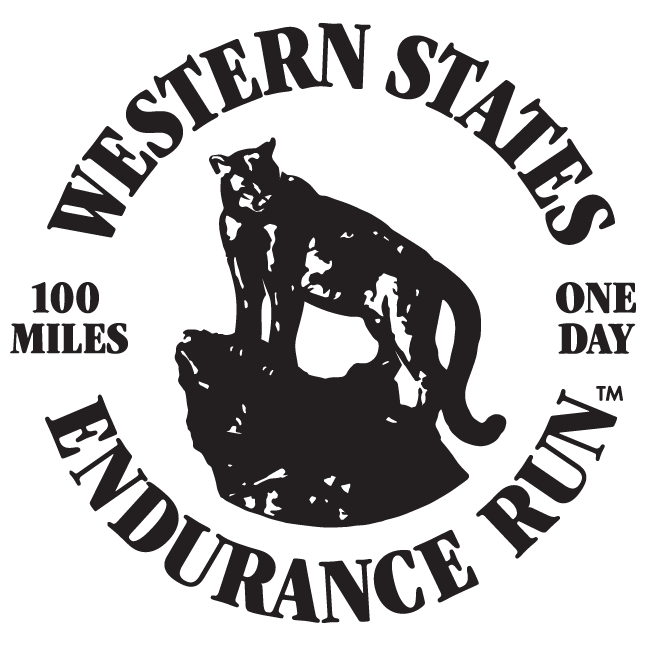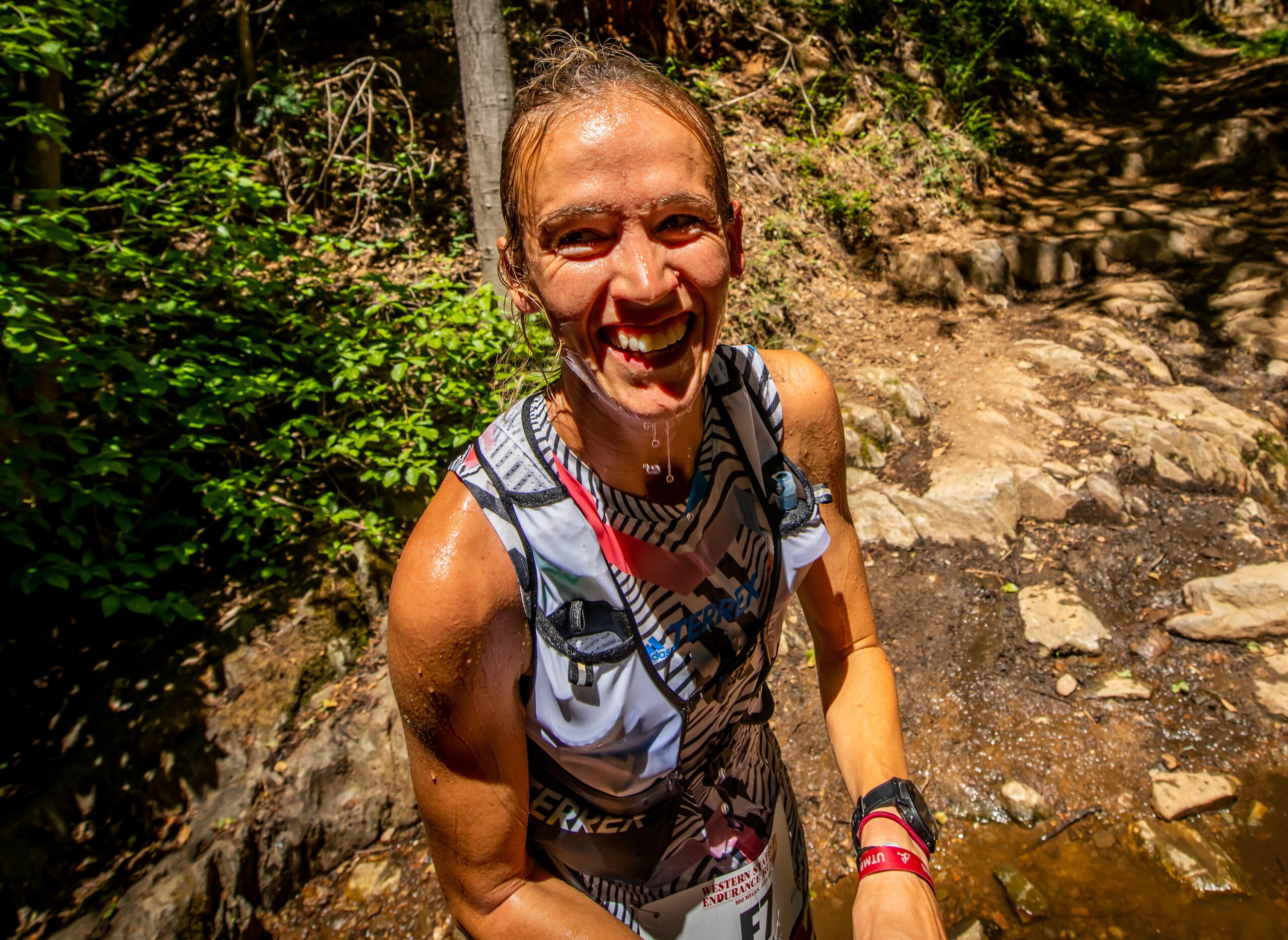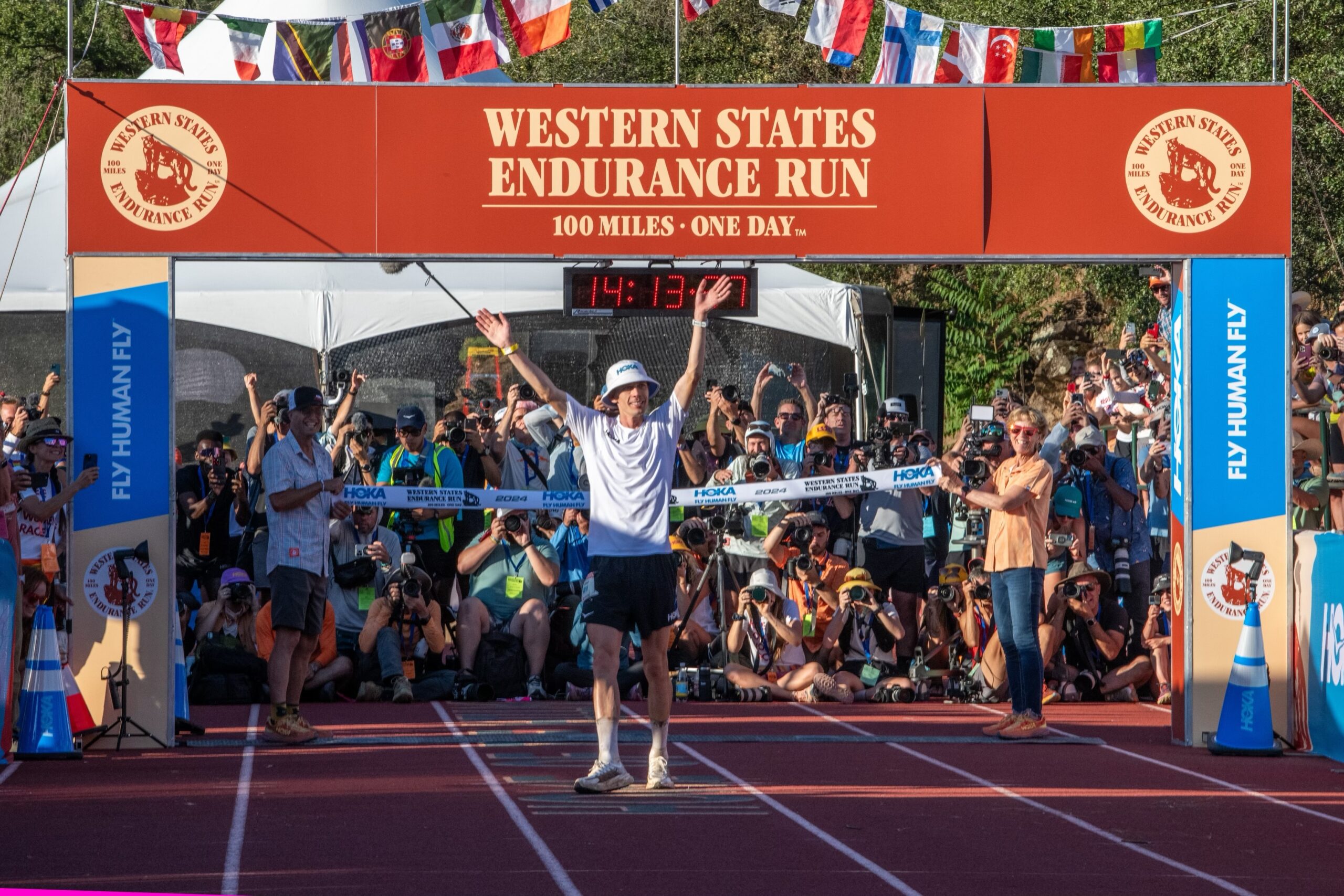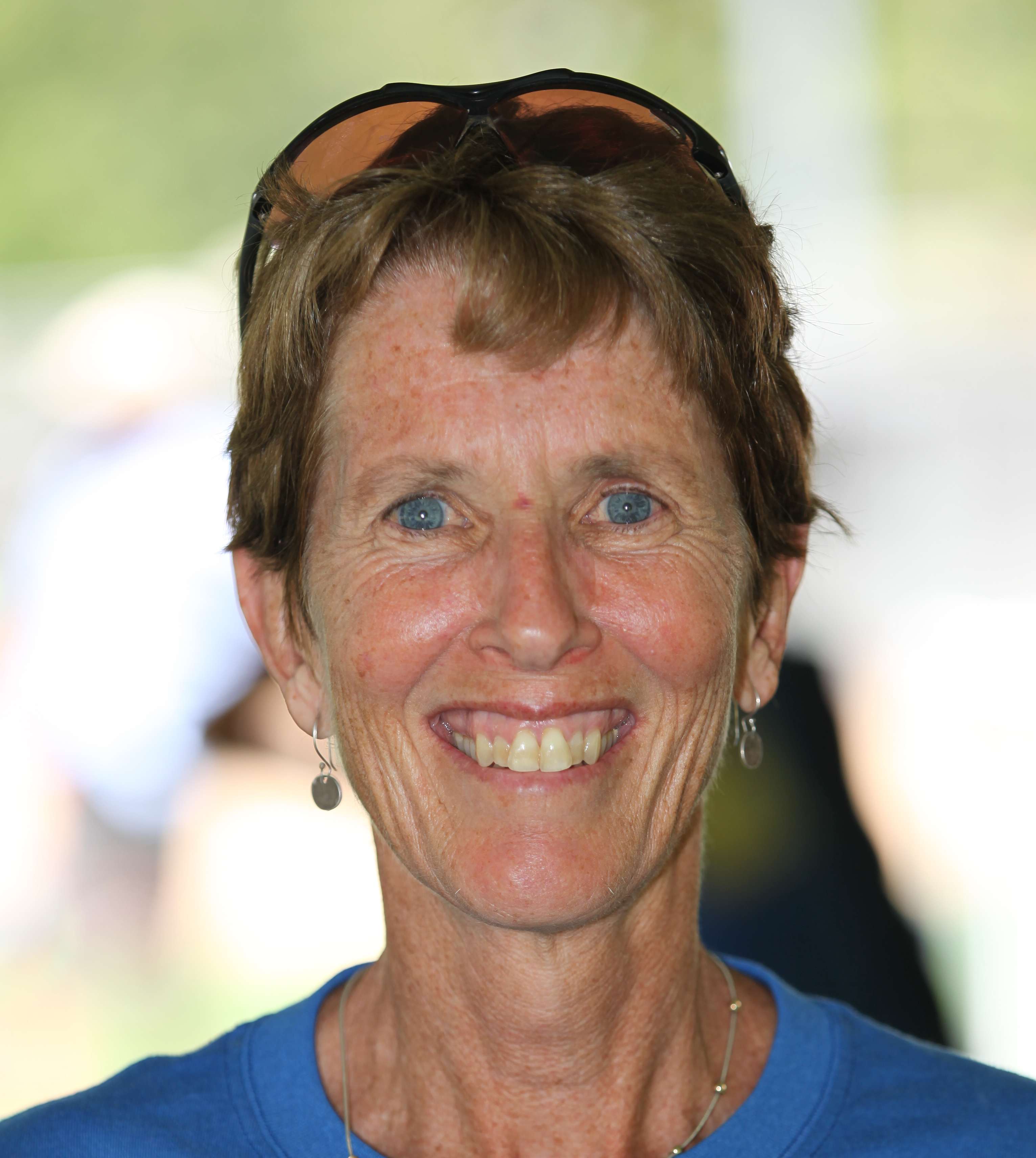FOR IMMEDIATE RELEASE
CONTACT: John Trent, media relations, (775) 842-4871, press@wser.org
DAUWALTER RUNS A RACE FOR THE AGES AND EVANS RUNS AWAY FROM MEN’S FIELD AT WESTERN STATES ENDURANCE RUN PRESENTED BY HOKA
Courtney Dauwalter shatters women’s course record, Tom Evans runs the fourth-fastest men’s time at 2023 WSER
In a sterling career that has seen Courtney Dauwalter record one superlative after another, her course record-setting effort on Saturday in winning the women’s race at the Western States Endurance Run was perhaps her best ever.
Dauwalter, 38, of Leadville, Colorado, shattered Ellie Greenwood’s longstanding 11-year-old course record by more than an hour in running 15 hours, 29 minutes and 33 seconds. Greenwood’s previous record set in 2012 was 16:47.
Dauwalter, in winning her second Western States in the past five years, became the first woman in WSER history to ever break 16 hours. She finished in sixth place overall.
What made Dauwalter’s new record all the more remarkable was the fact that she needed to negotiate about 20 miles of snow in the early going of the race. A heavy Sierra winter had left the “high country” portion of the course with near-record amounts of snow, but Dauwalter, a former collegiate Nordic skiing standout, bided her time well over the most difficult portion of this year’s course. She ran early with UTMB champion Katie Schide, but eventually began a searing surge from Robinson Flat (mile 30) on that saw her move into the top 10 overall by mile 70. Her 2-hour, 10-minute split from Foresthill (mile 62) and the Rucky Chucky river crossing (mile 78) was the fastest ever by a woman runner at Western States by more than 20 minutes. To put the split into perspective, consider that Jim Walmsley recorded a 2:05 split to the river in setting the men’s course record of 14:09.
“The day was so fun,” Dauwalter said. “I’m so thankful for all of the volunteers who were out on the course … and they also got the trail ready … it was absolutely beautiful out there. And it was very difficult and I’m happy to be here at the track with all of you.”
Schide, 31, of Gardiner, Maine, would also break Greenwood’s course record in finishing second in 16:43. Eszter Csillag, 38, a Hungarian living in Hong Kong, finished third in 17:09. The top nine women’s finishers all broke 18 hours – a first in Western States history, making the 2023 race the deepest women’s race in Western States history.
In the men’s race, Tom Evans, 31, of Loughborough, Great Britain, used a similar strategy to Dauwalter’s to win his first Western States title. Evans, who placed third in 2019, shared the lead with Dakota Jones throughout much of the early going, with the pair entering the Foresthill aid station at mile 62 even. From there, however, Evans ran a 2:07 split to the river crossing to take a commanding 16-minute lead over Tyler Green of Portland, Oregon. Evans would finish in 14:40, which is the fourth-fastest men’s race ever run at Western States. Green finished second in 15:04 with Anthony Costales of Salt Lake City third in 15:09.
“I think for me, this year, I put all my eggs in one basket to come to Western States and have my best possible day,” Evans said. “And yeah, I still can’t believe it myself. … This is my favorite race in the world.”
Although the snow might have made for tough conditions in the early going, weather conditions for this year’s run could not have been more favorable. Temperatures were in the low 80s throughout the day.
In all, the run saw 328 finishers, which tied 2010’s “Unbreakable” year for the most finishers in race history. The 50th Western States was the first time the race had been held on the Western States Trail since last fall’s 76,788-acre Mosquito Fire, which burned in California’s Placer and El Dorado Counties. The Mosquito Fire had a devastating impact on the communities in and around the Western States Trail, destroying 78 structures in Michigan Bluff, Foresthill and Volcanoville. The fire also charred about 16 miles of the Western States Trail. The work of Western States trail teams, in partnership with the U.S. Forest Service and the Auburn State Recreation Area, helped bring the trail back in time for this year’s event.
As has been the custom for Western States, the 2023 event featured many emotionally moving stories.
One of the most compelling was the story of Zach Bates. The 21-year-old resident of Lakeside, Arizona, earned a silver belt buckle with his time of 23:37. Zach’s finish at Western States was just the latest of many firsts for him. Diagnosed with autism, Zach earlier this year became the youngest finisher ever at the Coldwater Rumble. Zach’s ultra journey began when he went to his family on the night of his high school graduation and told them he wanted to run a 100-miler before he turned 20. This year’s Western States saw him earn one of the most coveted finisher’s awards in all of running.
John Almeda, who has been identified as having nonverbal autism, also finished 2023’s run. Almeda, 29, of Sacramento, California, finished in 27:07. Almeda’s progression in the sport has been remarkable, having moved from runs around a local high school track in Sacramento to the Boston Marathon to a finish in last November’s Rio Del Lago 100.
Earlier this year, John’s mother, Vanessa said of her son: “He just loves to run, and I feel like autism is his superpower. He just feels free energy and pure joy.”
Zach’s mother, Rana, said earlier this year: “If we listen to our children and allow them to do what they want to do and be a support to them, you’ll be surprised at where they’ll end up.”
And although there were 328 official finishers, one of the most emotional moments of this year’s run came after the horn at the 50-yard line of the Placer High School track sounded to signal the 30-hour cutoff.
61-year-old Ashley “Ash” Bartholomew of Melbourne, Australia, the father of internationally respected ultra runner Lucy Bartholomew, missed the official cutoff by 2 minutes and 20 seconds, finishing in 30:02. Bartholomew’s effort over the final 1.3 miles as his daughter and a huge group of friends and well-wishers urged him on gripped the WSER live broadcast as he bravely made his way to the Placer High School while fighting a severe forward lean and fatigue.
Although he missed the 30-hour cutoff, the crowd at Placer High School rose to its feet and gave Ash a huge ovation.
It was the second straight year that Western States’ final moments had captured the imagination of all who were in attendance. In 2022, cancer survivor Jennifer Shultis also narrowly missed the 30-hour cutoff but earned a standing ovation that was very reminiscent of Bartholomew’s finish on Sunday morning. Shultis’ husband, Richard Benoit, finished this year’s race (with Shultis serving as crew chief) in 24:48.
This year’s race commemorated the 50th Western States. In August 1974, Meadow Vista, California woodcutter Gordy Ainsleigh joined the horses of the Tevis Cup and covered the distance from Olympic Valley, California to Auburn, California entirely on foot in 23 hours and 42 minutes. Since then, more than 6,000 individuals have finished Western States.
